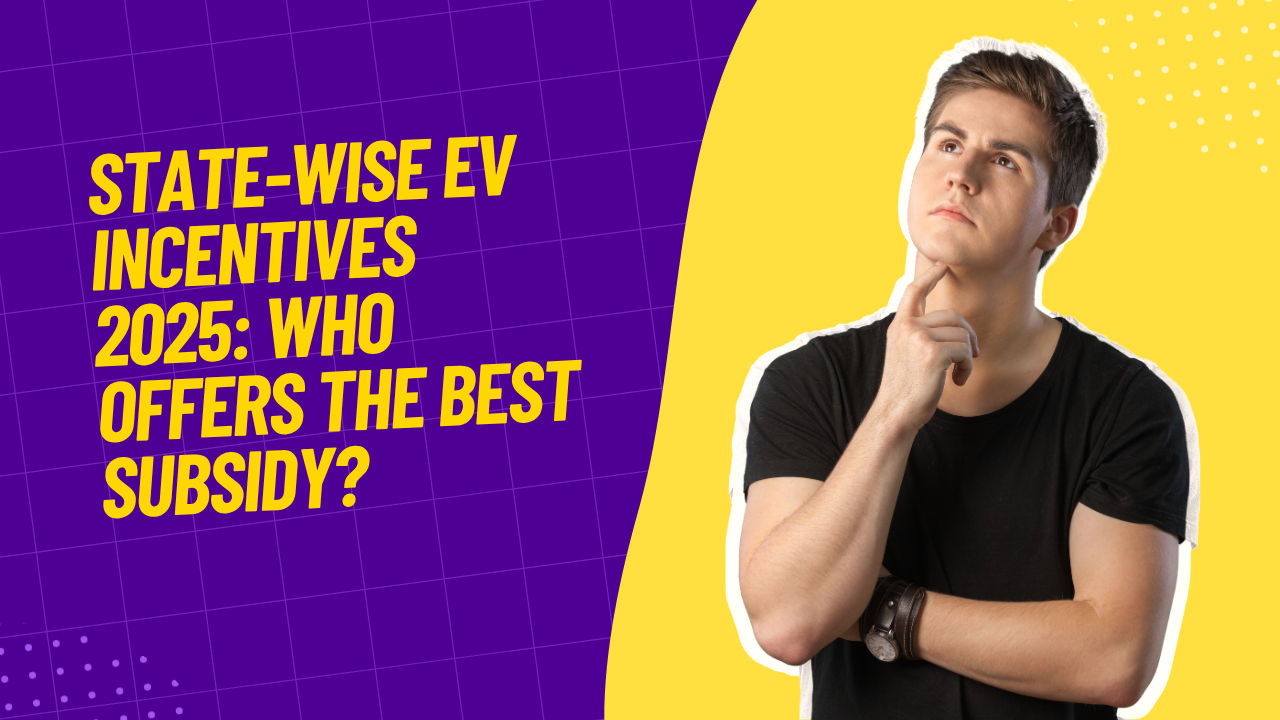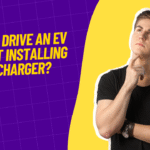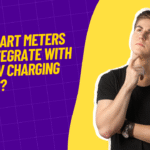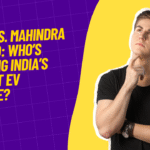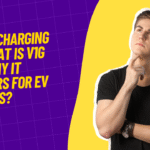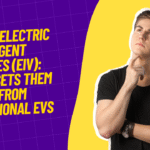As India accelerates its shift toward electric vehicles (EVs), state governments are increasingly stepping in to supplement central policies like FAME 3 with their own EV incentives. While the central government provides base-level subsidies, states tailor their schemes—offering registration rebates, road tax waivers, direct purchase incentives, and charging infra perks. For EV buyers in 2025, knowing which state offers the best combination of benefits can influence their purchasing decision.
In this comprehensive guide, we break down incentives offered by key states in 2025, highlight the top contenders for EV buyers, and provide a step-by-step overview of eligibility and application processes. Expect granular details—no generic filler—so your content feels original, detailed, and user-friendly.
Why State-Level Incentives Matter?
Central subsidies are essential, but they often fall short of making EVs truly affordable—especially in lower-income or suburban markets. State-level additions can significantly reduce EMI burdens or charging costs. They also reflect local priorities and electric mobility strategies, which often vary dramatically:
- Registration & Road Tax Waivers: Cut thousands off up-front cost
- State Purchase Subsidy: Adds to FAME 3 benefit
- Charging Infrastructure: Discounts, free kWh, solar‑powered stations
- Loan Interest Subsidy: Eases financing for buyers and dealers
- Battery Swap Incentives: Encourages swappability and convenience
Now, let’s evaluate the major states to see who offers the best deal.
1. Delhi
Overview
Delhi remains the national leader in EV support, combining aggressive subsidies with city‑wide infrastructure development.
Incentives
- Registration & Road Tax: 100% exemption on both
- State Purchase Subsidy: ₹15,000–₹25,000 for two-wheelers; ₹30,000–₹50,000 for cars under ₹15 lakh
- Battery Swap Bonus: ₹5,000 additional incentive
- Charging Infrastructure: Free charging at select public stations (pilot); renters-backed EV chargers in apartments
Eligibility & Process
- EV must meet FAME 3 conditions and fall within price cap
- Purchase through Delhi‑registered dealer
- Documents: Aadhaar, address proof, dealer invoice
- Subsidy applied up-front; no post-purchase claims needed
Summary
Delhi offers one of the highest total state subsidies, alongside infrastructural perks. Ideal for urban commuters.
2. Maharashtra
Overview
Maharashtra is positioning itself as a manufacturing and adoption hub, with balanced incentives.
Incentives
- Registration & Road Tax: Waived for EVs up to 10 years old
- State Subsidy: ₹20,000–₹25,000 on two-wheelers; ₹1 lakh on four-wheelers under ₹15 lakh
- Charging Support: Capital grants for fast chargers at public/private sites
- Loan Subsidy: 1–1.5% interest subvention for up to 3 years
Eligibility & Process
- Buyer must apply through dealership or state portal
- EV to be India-assembled or locally manufactured
- Infrastructure grant available via Maharashtra energy department
Summary
Maha offers one of the highest car subsidies among states, backed by infrastructure and loan benefits—well-rounded for all buyers.
3. Gujarat
Overview
Gujarat’s EV push emphasizes charging ecosystem development paired with consumer support.
Incentives
- Road Tax & Reg Fee: Fully waived
- EV Purchase Subsidy: ₹20,000 for two-wheelers; ₹50,000 for cars under ₹15 lakh
- Charging Infrastructure: Subsidy up to 25% of project cost (max ₹15 lakh per AC/DC charger)
- Solar EV Incentive: Additional ₹5–10/kWh credit for solar-powered home charger users
Eligibility & Process
- Vehicle purchase through registered dealer
- Infrastructure subsidy for CPOs or housing societies via state energy board
- Buyers must own solar rooftop or apply for it in conjunction
Summary
Gujarat’s integrated focus on solar EV charging and strong car subsidies make it top of the class for eco-conscious buyers.
4. Tamil Nadu
Overview
Industrial and manufacturing priorities inform Tamil Nadu’s approach, which strongly supports adoption in Tier 2–3 urban areas.
Incentives
- Road Tax Waiver: 100% for private EVs, including cargo
- State EV Subsidy: ₹20,000 for two-wheelers; ₹75,000 for golf carts and light vehicles under ₹15 lakh
- Charging Grants: Up to ₹10 lakh for public fast chargers
- Battery Swapping: ₹20,000 incentive for compatible models
Eligibility & Process
- EV and infrastructure eligible when made/installed within TN
- Registration through state RTO with EV declaration
- Infrastructure grants via TNESCo or MSME schemes
Summary
Tamil Nadu’s strong ecosystem push makes it ideal for buyers in industrial and emerging towns.
5. Telangana
Overview
Telangana is delivering one of the most generous EV regimes in south/south‑central India.
Incentives
- Road & Reg Exemption: 100%
- Purchase Subsidy: ₹20,000 (2W), ₹50,000 (3W), up to ₹1 lakh on cars <₹15 lakh
- Battery Swap Bonus: ₹10,000
- Priority Parking: Free city parking for supported vehicles
- Exclusive EV-only Parking Area: In metro zones
Eligibility & Process
- EVs must be DHI-approved model
- Buyers claim through RTO at registration; dealer aid available
Summary
Strong acquisition incentives and urban perks like parking make Telangana among the most EV-friendly states.
6. Karnataka
Overview
As India’s tech hub, Karnataka offers EV support focused on infrastructure and commercial use.
Incentives
- Road Tax Waiver: 100% for 10 years
- Registration Exemption: 100%
- Purchase Subsidy: ₹15,000 (2W), ₹25,000+ battery bonus, ₹75,000 (4W <₹15 lakh)
- Charging Help: ₹10,000 grant per AC charger; ₹1 lakh per fast charger
- Fleet Support: ₹75,000 per vehicle for shared/fleet services
Eligibility & Process
- Infrastructure grants via KREDL
- Buyers need proof of Karnataka registration and chosen EV must be state-approved
Summary
Balanced incentives, infrastructure funding, and ties to fleet deployment make Karnataka attractive for private and commercial buyers.
7. Punjab
Overview
Punjab is among northern states offering consumer-first EV benefits.
Incentives
- Registration & Road Tax: Fully waived
- EV Car Subsidy: ₹50,000 for cars <₹15 lakh
- Two-Wheeler Subsidy: ₹15,000
- Charging Grants: ₹10,000 per AC charger; ₹50,000 per DC charger
Eligibility & Process
- EV models must be listed by Punjab EV policy
- Infrastructure aid via Punjab State Power Corporation
- Buyer/dealer applies at RTO or portal
Summary
Straightforward and centered on lowering purchasing costs; industrial backing is secondary.
8. West Bengal
Overview
West Bengal combines EV subsidy with industrial strategy, but lags in execution.
Incentives
- Road Tax & Reg Fee: Waiver up to 10 years
- Purchase Incentive: ₹15,000 (2W), ₹30,000 (3W/cars <₹15 lakh)
- Infra Support: ₹25,000 for EV charger installation
Eligibility & Process
- EV and charger must be purchased in West Bengal
- Subsidy applied at registration; infrastructure claimed via WBSEDCL
Summary
Average incentives with some gaps in charging deployment, though support exists on paper.
9. Uttar Pradesh
Overview
UP’s EV policy focuses on rural inclusion and logistic fleets.
Incentives
- Registration/Tax: Waived for private EVs
- Purchase Subsidy: ₹20,000 (2W), ₹50,000 (3W), ₹75,000 (4W)
- Charging Infrastructure: ₹50,000 grant per AC charger
Eligibility & Process
- Deals through UP E‑Vehicle portal
- Rural vehicle models may get separate budget allocation
Summary
Good across categories, though states like Maharashtra and Delhi still lead for total value.
10. Rajasthan
Overview
Rajasthan is expanding EV ecosystem while promoting EV tourism and buses.
Incentives
- Road Tax Exemption: 100%
- Purchase Subsidy: ₹20k (2W), ₹35k (3W), ₹1 lakh (4W <₹15 lakh)
- Charging Support: ₹50,000 per AC charger; ₹1 lakh per DC charger
Eligibility & Process
- Applications via Rajasthan Energy Department
- EV must be carried out within the state market
Summary
Well-rounded but not standout; still competitive for four-wheeler buyers seeking charger support.
2025 State Incentive Rankings Summary
| Rank | State | Incentive Strength | Notable Highlights |
|---|---|---|---|
| 1 | Delhi | Very High | Top subsidies, free charging pilots |
| 2 | Telangana | High | Parking, purchase, swap incentives |
| 3 | Maharashtra | High | Car subsidy, loan support, infra schemes |
| 4 | Gujarat | High | Solar charging incentive + charger subsidy |
| 5 | Karnataka | Medium-High | Fleet + private combo |
| 6 | Tamil Nadu | Medium-High | Rural push and swap support |
| 7 | Punjab | Medium | Straight subsidies, low complexity |
| 8 | Rajasthan | Medium | Balanced for EVs and chargers |
| 9 | Uttar Pradesh | Medium | Good, but infrastructure lags |
| 10 | West Bengal | Medium | Policy exists; infrastructure slower |
How to Choose Your State if You’re House-Purchasing?
- Research Comparative Value: Look at total subsidy + waiver + infra benefits
- Match Infrastructure Availability: Larger subsidy worthless without chargers
- Check Local Dealership Readiness: Dealers must register under EV scheme
- Consider Loan & Tax Benefits: Lower EMI + zero registration adds instant savings
- Weigh Climate & Terrain: States with solar incentives help reduce charging cost outdoors
Frequently Asked Questions (FAQs)
Q1. Which Indian state offers the best EV subsidy in 2025?
Delhi and Telangana lead overall. Delhi excels in infrastructure and car subsidies; Telangana adds urban perks like priority parking.
Q2. Are these incentives cumulative with FAME 3?
Yes. All state subsidies stack on top of central FAME 3 subsidies, reducing on-road prices significantly.
Q3. How do I claim these state benefits?
Most are applied at registration or via dealership. Charger incentives require separate state-level applications.
Q4. Can I claim benefits if I buy outside the state?
No. Eligibility ties to vehicle registration and buyer’s local residence within that state.
Q5. Do used EVs qualify for subsidies?
No. Only brand‑new EVs purchased from authorized dealers are eligible.
Q6. How long do these state incentives last?
Each state reviews annually. Some states have sunset clauses (e.g., until 2027 or till funds exhaust).
Q7. Are commercial and fleet EVs covered?
In many states—Karnataka, UP, TN—fleet EVs get separate subsidies or additional caps to spur logistics electrification.
Final Thoughts
As India pivots toward cleaner mobility, state-level EV incentives have become crucial in shaping purchasing decisions. While Delhi, Telangana, Maharashtra, and Gujarat offer the strongest combined packages, other states follow closely with their own models of encouraging EV uptake.
For prospective buyers, pairing a state with robust subsidies and developing charging infrastructure can ensure you maximize savings while enjoying a seamless EV experience. Before you buy, check the latest notifications on state transport or energy department sites, and verify EV eligibility with your dealership.
